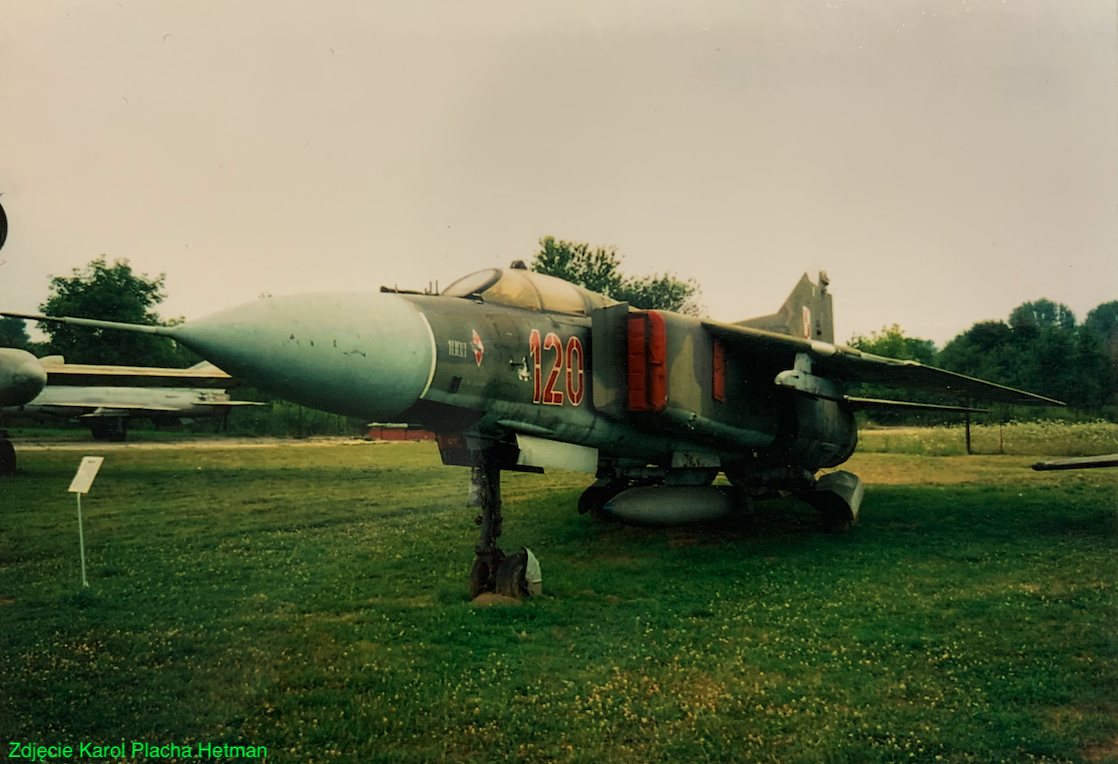Kołobrzeg 1989-07-04
Mikojan and Guriewicz MiG-23 from Bagicz.
In 1989, in the CCCP, the tsar was Mikhail Gorbachev, who tried to make communism with a human face. Military détente between the East and the West continued. The threat of potential war in Europe has diminished. The former adversaries now looked at each other friendly. This does not mean, however, that disarmament has taken place and the military blocs have ceased to exist. CCCP still had military bases in Poland, and training in military units continued as usual.
On July 4, 1989, normal training flights were carried out at the Soviet airport in Bagicz, near Kołobrzeg. Geographic coordinates: 54.199N 15.682E. Elevation 4 m. The first main RWY with dimensions of 2,500 m x 40 m, direction 08/26. The Soviet 871st Fighter Aviation Regiment was based at the airport, equipped mainly with Mikoyan and Gurevich MiG-23 M fighter aircraft.
On July 4, 1989, at 09:14, a Mikojan and Guriewicz MiG-23 M combat aircraft took off from RWY in Bagicz, piloted by Colonel N. E. Skudrin, the squadron commander. The launch took place towards the west, heading 260 degrees.
According to the report of the pilot N. E. Skudrin: The take-off proceeded normally. After taking off, the pilot retracted the landing gear. The plane’s speed reached 520 km/h and the flight altitude was 90 m. At that moment, the pilot heard a bang, the engine speed dropped and the afterburner turned off. The plane’s speed began to drop. Any actions by the pilot did not increase engine thrust. The pilot decided to fire and directed the plane towards the sea, i.e. to the right, north. The pilot landed safely by parachute.
In fact, the pilot ejected just 10 seconds after the first drop in engine speed. So he didn’t do much in the cabin. According to the black box recording, the drop in revolutions occurred 29 seconds after leaving the RWY, at a speed of 400 km/h, at a ceiling of 100 m. The pilot ejected at a speed of 345 km/h, at a ceiling of 150 m. It turned out to be a lie that the pilot steered the plane over the sea.
After the pilot fired, the engine resumed normal operation (without afterburner) and had 100% revolutions for 5 seconds. The engine speed dropped again and this condition lasted for 18 seconds. And again the engine speed increased to 100%. The plane was still flying stably, with a course of about 260 degrees and slowly rising to the cruising ceiling, about 12,300 m. The flight speed stabilized at about 800-900 km/h, with the wings still spread. The flight stabilization system worked flawlessly. The plane passed East Germany, West Germany, the Netherlands and entered the Belgian zone. After 69 minutes and 36 seconds, the plane ran out of fuel and lost speed and altitude. At first quickly, then more gently, still maintaining the course. The plane crashed into a residential house in Kortrijk, near the Belgium-France border. An 18-year-old boy who came to visit his family for vacation died in the ruins of the house.
The plane flew nearly 1,100 km. When the plane was over Germany, a pair of American McDonnell Douglas F-15 Eagle planes took off. The pilots saw that the plane had no cabin fairing, no seat and no pilot in the cabin. The pilots did not receive orders to shoot down the plane. The French also picked up a pair of Dassault Mirage III NG planes, with orders to shoot down the plane when it flew over French territory.
The Americans carefully examined the remains of the plane to see if it had any reconnaissance equipment with online transmission. There was no such equipment. There was also no equipment to remotely control the plane. After four days, the Soviet commission received permission to take away the remains of the plane.
What was the reason for this strange flight? The reason was poor maintenance of the aircraft. Salty sea water got into the electronics of the MiG-23 M aircraft. The electrical connectors were not properly hermetically sealed. Corrosion occurred on the connectors, which resulted in interruption of electrical circuits and short circuits. After this accident, the 871st Regiment was transferred on September 1, 1989 to the airport in Brzeg, also in Poland. In 1990, this Regiment was rearmed with MiG-23 MLD aircraft. In 1993, the Soviets returned to the Moscow state.
Written by Karol Placha Hetman

